Iran nuclear talks: The tempers and tweets which led to a deal
- Published
How the Iran nuclear deal unfolded on social media
On 14 July 2015, Iran reached an historic deal with six world powers over its disputed nuclear programme.
It was the result of more than 20 rounds of talks over more than a decade. One year on, BBC Persian has been speaking to some of the people who made it happen.
"When I spoke to [my husband], exhausted and wondering whether we were going to get to the end of this, [he] said to me: 'Remember, you are part of history. What you and your colleagues are trying to do is to make the world a safer place.'"
US chief negotiator Wendy Sherman remembers a low-point in the final stages of the Iranian nuclear talks marathon.
The negotiations had begun in 2003 and dragged on for years with little progress, until Hassan Rouhani swept to victory in Iranian presidential elections in 2013.
"President Rouhani and his people wanted to resolve this issue with the West, get rid of sanctions, allow Iran back on world markets and to have a better future for their people," says French chief negotiator Nicolas de Riviere.
"[They] were the professional diplomats you'd expect to see," adds US diplomat Richard Nephew. "People who are used to going into a country, and trying to come up with a mutually advantageous solution."
Key to Iran's new negotiating team was the Foreign Minister, Mohammad Javad Zarif, a jovial US-educated diplomat and a keen user of social media.
He was quick to tweet a breakthrough at the first round of talks with the new team in Geneva, in November 2013, just five months into President Rouhani's term.
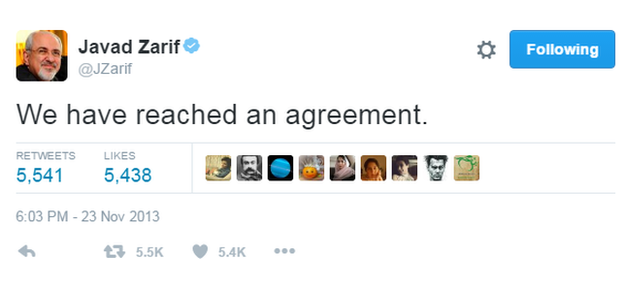
At the heart of the dispute was a seemingly intractable problem - how to square Iran's ambitions to have a nuclear power programme with international concerns that the country was using that programme to secretly develop a nuclear weapons capacity.
Breaking bread
The framework deal hammered out in Geneva opened a way out of the impasse and allowed for further rounds of talks over the next two years in Vienna and Lausanne.
But negotiations involving such long-entrenched adversaries as the US and Iran were never going to be easy.
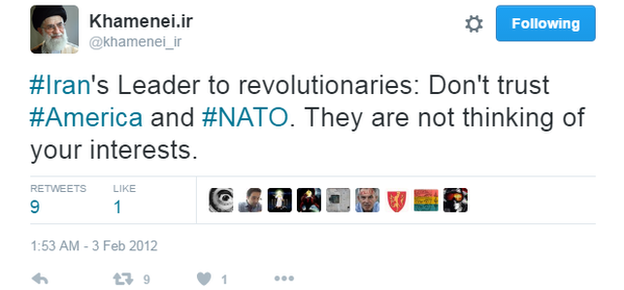
"It took us some time to establish a good working relationship and to develop trust," recalls Germany's chief negotiator, Hans Dieter Lucas.
"You need to sit together many, many hours and talk to each in a serious way. It's very important to be able to put yourself also in the other side's shoes."
The Swiss foreign ministry took a central role hosting many rounds of talks, establishing a familiar routine that also helped cement relationships between the sides.
"Each time a minister arrived... the chief of protocol Geneva and myself were at the airport to greet the minister," recalls senior Swiss diplomat Wolfgang Amadeus Bruelhart.
"And our foreign minister always welcomed them with a personal letter and some Swiss chocolates."
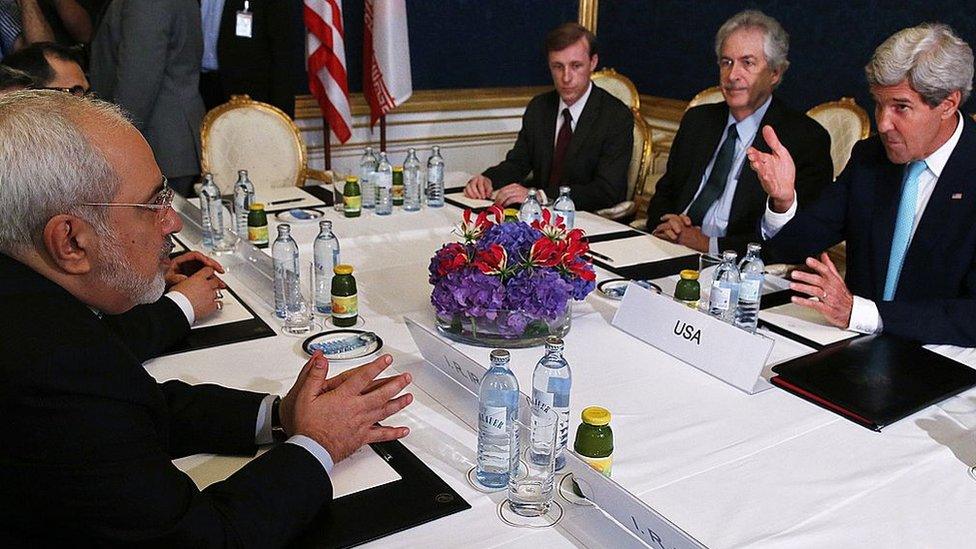
The talks sometimes went on through the night
Food was to play an important role in bringing the teams together.
In Vienna, the Iranians invited the Americans to dine with them at their hotel.
"My favourite was the Persian chicken with crushed pistachios," recalls Wendy Sherman. "Those times of breaking bread together are always useful in building the relationships you need when you are the middle of such tough negotiations."
Tough was the word as the talks delved into the complexities of Iran's nuclear programme and the politics of lifting sanctions and arms embargoes.
"Everything came together," says Hans Dieter Lucas. "Complicated technical questions and, on the other hand, a political framework, which was also extremely difficult."

Find out more
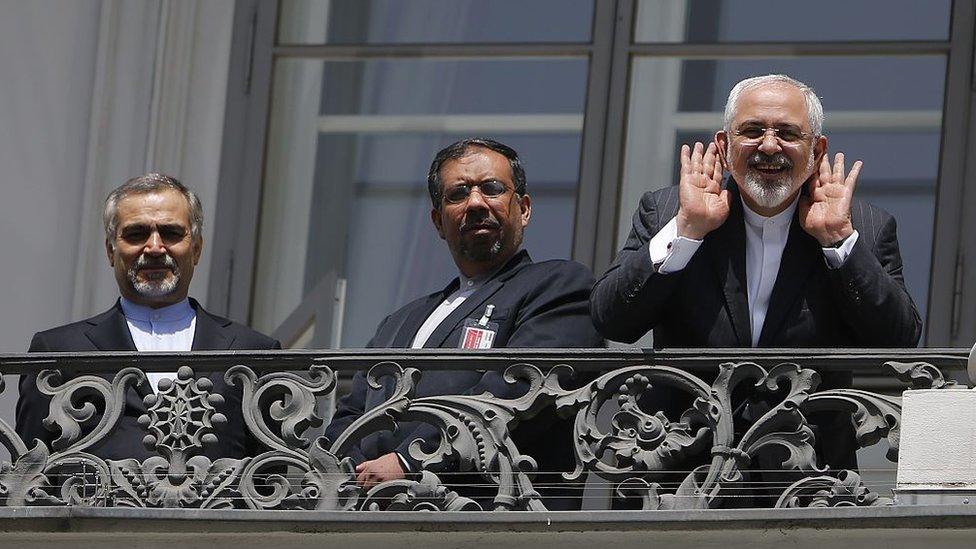
Our World: Iran's Nuclear Deal: The Inside Story is on BBC Persian in Farsi on 14 July at 11:00 GMT and 15 July at 10:00 and 1800 GMT; on the BBC News Channel on 16 and 17 July at 21:30 GMT and on BBC World starting on 15 July. (Click here for transmission times)
Viewers in the UK can catch up on the BBC iPlayer

As they inched towards progress, the negotiators found the devil really was in the detail.
"It's about centrifuges, stockpiles, stabiliser tops," says Nicolas de Riviere."Very quickly you need people who are experts."
'Like a movie'
The talks were also a complex logistical challenge for the managers of the grand European hotels that hosted them.
Francois Dussart of the Beau Rivage in Lausanne remembers waiting to greet the US Secretary of State, John Kerry.
"The amount of security, the amount of cars that arrived - you feel like you are watching a Hollywood movie but you are part of it," he says.
The talks often ran long over deadline, with hotels having to cancel bookings and negotiating teams spending long nights in hotel rooms poring over the fine details of a text, and eating pizza.
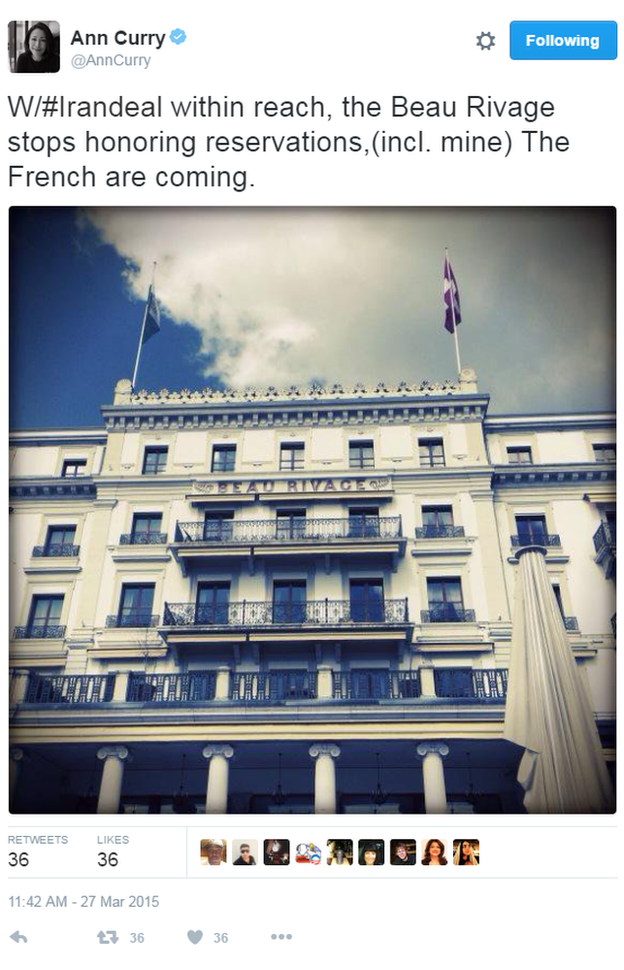
With no news to report, the pizza sometimes became the focus of journalists' attention.
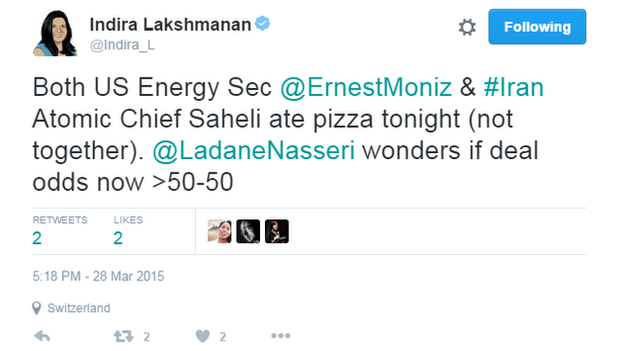
"It made doing business much more difficult to have our every movement recounted on Twitter," says Richard Nephew. "My wife was always emailing to ask why I was eating pizza on a random Friday night and not getting on a plane home."
Hours spent in rooms negotiating inevitably brought people closer together.
Wendy Sherman remembers finding common ground with Iran's chief negotiator, Abbas Araqchi.
"Abbas and I both became grandparents during this time," she says. "So we shared videos of our grandchildren."
But she adds: "That didn't change how tough we were with each other in the negotiation."
Inevitably tempers would sometimes flare.
"[EU foreign policy chief] Federica Mogherini was chairing a round with ministers in Vienna during the end game," recalls Helga Schmid, Ms Mogherini's deputy.
"She had a heated argument with the Iranian foreign minister and he said: 'Never threaten an Iranian'."
In the absence of any other news, the phrase even briefly became a hashtag on Twitter.
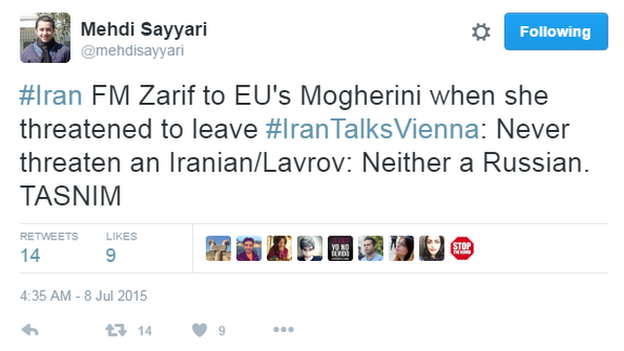
'So overwhelming'
After 17 days of talks in Vienna, including three extensions, the breakthrough finally came late at night on 13 July.
"Just before midnight, Abbas Araqchi posted a picture on his Instagram, and I knew almost for certain that there was a deal," says BBC Persian's Amir Paivar.
"It showed the hand of Iran's Supreme Leader signing off something. There was no comment on the post but we knew what it meant."
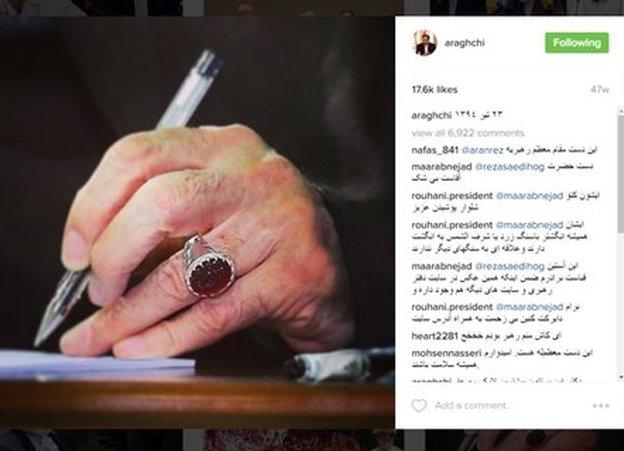
"I knew for sure the deal was done at three o'clock in the morning on the 14 July," says Helga Schmid.
"That's actually when we finalised the texts... It was just so overwhelming that I can't say I was happy, I was just relieved that it was done."
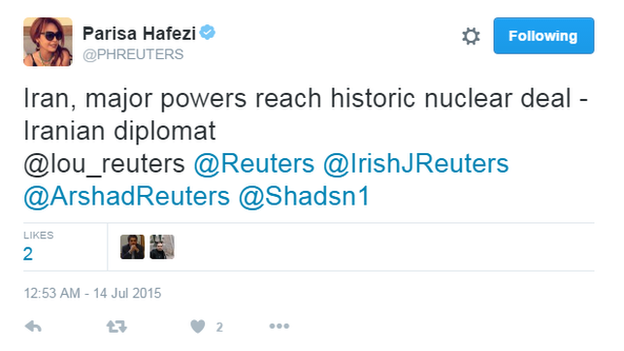
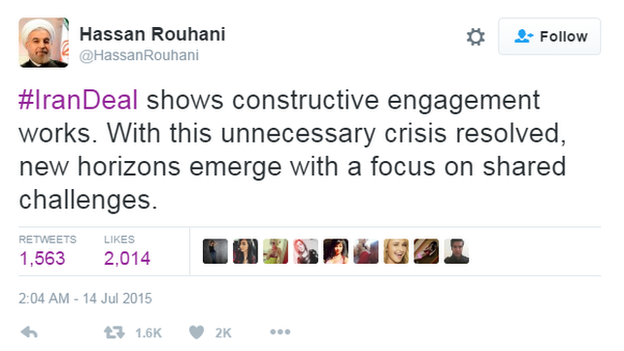
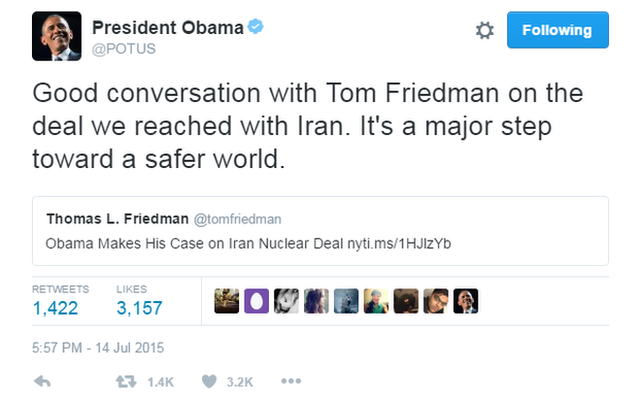
Before the announcement was finally made, all the negotiators spoke at an emotionally-charged private meeting.
For Wendy Sherman, the pivotal moment came when John Kerry got up and recalled his experience in the Vietnam War.
"He came back from that war and... and made a commitment to make sure there was never a war ever again, and that's what he was about in this negotiation," she says.
"The room was absolutely still. There was quiet and then everyone including the Iranians applauded, because I think for all of us we understood that what we had done was to ensure peace and not war."